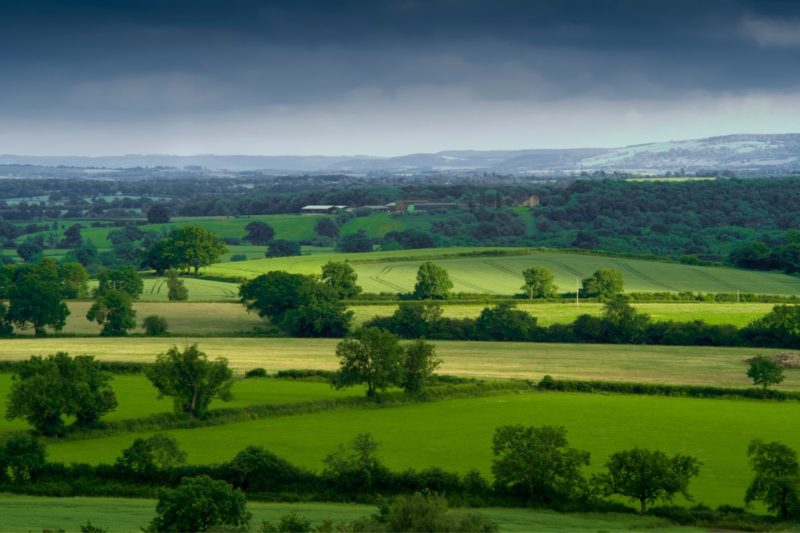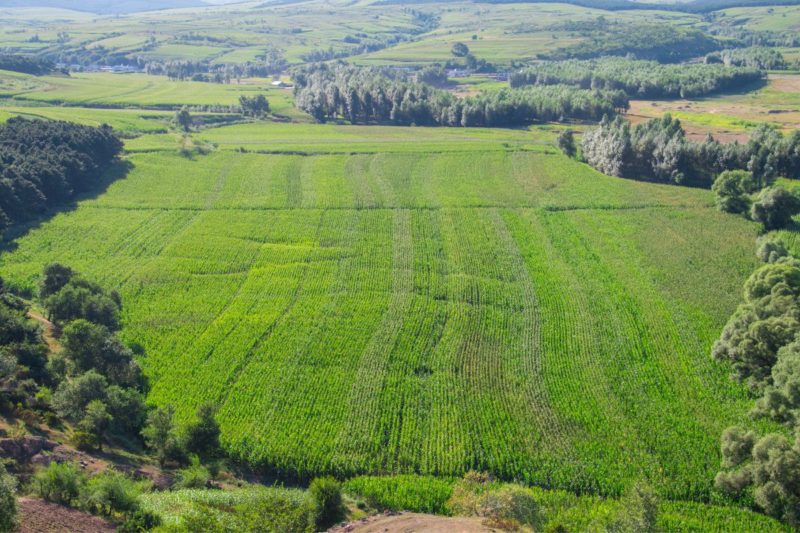Investing in land can reap some great financial rewards which is largely why billionaires are so interested.
If you look at the likes of Bill Gates, George Soros, and Jeff Bezos, you can see acres of farmland in their portfolios. Alongside recreational land and transitional land, farmland can be accumulated as a smart investment.
In fact, prior to their divorce, Bill and Melinda Gates were the largest owners of American farmland and you should find out why.
By looking at how billionaires spend their money, you can look at improving your own investments. In this guide, we will look at why are billionaires buying up farmland?
What's Ahead...
Why Are Billionaires Buying Up Farmland?
Farmland remains a great option for investments looking to diversify their portfolios, primarily away from publicly traded investments.
The first reason is down to how good the potential returns can be which has been proven over time, specifically with US farmland.
You can expect some solid returns and between 1992 and 2020, an average annual return was around 11.0%. Compared to the stock market, that fares around 3% higher in terms of an average annual return.
Strong And Passive Returns
Those returns come in two forms which include the income from crop and rental payments. The second is price appreciation which comes from the sale of that underlying asset.
You can also expect a passive return so that can sit well in a portfolio while allowing investors options where they can diversify their streams of income.
By investing in farmland, an investor can also protect themselves across certain fluctuations.
Having a diversified portfolio is crucial for any investor and farmland represents a solid asset class to look into. Namely, the price of crop payments can fluctuate with that price of commodities.
The investment in farmland is essentially an effective hedge versus fluctuations like inflation which remains a wise idea.
Healthy Diversification
Another reason, specifically involving billionaires, is how healthy the diversification can be alongside some more expected investments.
For instance, Bill Gates has several billions of dollars invested in various technological endeavors, which you would expect.
If Gates had simply invested all of his wealth in one sector such as technology, then that could be seen as a risk.
With investments in several uncorrelated asset classes, Gates can enjoy watching his farmland returns come in without having to worry about his technological stakes and vice versa.
Limited Volatility
As farmland is so far removed from technology as an asset class, the investment can stand alone.
By not putting all his eggs in one basket, billionaires like Gates can protect their wealth. It is worth noting that farmland also benefits from limited and low volatility as an asset class.
While the biggest decline of the S&P 500 was down by -46% in the Great Financial Crisis, the National Council of Real Estate Investment Fiduciaries (NCREIF) Farmland Index did not decrease but increased by around 17%.
While the stock market can fluctuate markedly and experience a volatility of around 17.2% between the years of 1992 and 2020, US farmland only reported volatility of 6.9%.
Other asset classes like hospitality and tourism can be adversely affected by lockdowns during pandemics, US farmland will remain relatively unaffected.
Increased Sustainability
An increasingly important factor in many investment decisions is how sustainable it is. US farmland remains an asset that looks out for the global economy and actively increases the planet’s sustainability.
Put bluntly, by investing in farmland, an investor is looking out to provide food for the world’s increasing population.
By involving technology and further sustainable farming practices, farms can double or even triple their yield which is great news for the environment, farmers, and investors.
The value of the land will increase too which makes it an enviable investment without having to worry about building anything on top of it.
While valuable commodities such as diamonds and art will remain popular investments, farmland has a finite supply.

The Billionaires That Are Investing In Farmland
As we mentioned previously, Bill Gates is an avid investor in US farmland but he is not the only billionaire to add farmland to their portfolio.
Another big investor in farmland is the Chinese businessman Wang Jing. While Gates looks to have focused his farmland investments in the US, Jing has opted for South America and Africa with plans to use the investment to grow food for his native China.
Further billionaires to have invested in farmland include Stan Kroenke and Prince Alwaleed bin Talal from Saudi Arabia. Just like Jing, the investments in farmland look to be for the prime purpose of food production for both billionaires.
George Soros has also reportedly purchased over 1m acres of Argentinian farmland to revive the country’s agriculture and help it reach its potential.
There is also ‘The Grain Belt Express’ which is a joint farmland-buying venture between the billionaires Bill Gates, Carlos Slim, and Warren Buffet. So far, ‘The Grain Belt Express’ has raised around $2bn for the purpose of buying huge areas of farmland.
Jeff Bezos has also invested in farmland with a total of about 400,000 acres of land being purchased in the state of Texas.
Then there are real estate magnates like Jorge Perez and Sam Zell, the latter of which has bought properties in the states of Iowa, Illinois, and Indiana while the former has bought up farmland in Florida.
How To Invest In Farmland
Should you look to invest in farmland, you will need to treat it as a long-term investment.
That means carrying out your due diligence and to have a vast understanding of the market conditions.
That’s the same for most investments, as you will need to make an informed decision based on where you want to invest and work out if farmland is the right choice.
While there is a low and limited volatility in the asset class of farmland, there will be ups and downs. That means lean years on your investment so it helps to think long-term.
Once you have got through a difficult period, you can expect to see returns on your investment. Make sure that you work with a professional with your investment, and a qualified one in that.
Final Thoughts
We should all be looking to see how billionaires are investing as they certainly know how to accumulate vast amounts of wealth.
They also have a wealth of options available to them and one of those looks to be investing in fertile farmland.
In fact, farmland was only below real estate and art as the third most popular investment amongst billionaire investors.
What is of interest, is how much farmland is being invested in so if you want to involve it in your portfolio, you should probably get involved quickly.
Frequently Asked Questions
Is Investing In Farmland A Good Idea As An Investment For People Other Than Billionaires?
While billionaires are investing in more and more farmland, it remains an enviable asset class for individuals who do not have such vast wealth.
Accredited investors can use an investment platform such as FarmTogether and investments can start from as low a cost as just $15,000.
The platform is also easy to use too which makes it a great option to have in anyone’s portfolio.
Why Might Calgary In Canada Be A Good Investment For Buying Up Farmland?
While interest has been focused on US farmland, the land prices have gone up.
However, prices for farmland have been pretty much stable north of the border in Canada and that includes Calgary. You can expect around a $1000 difference in the average price per acre between the US and Canada.
In provinces like Calgary, you can expect a great price per acre around that average compared to bigger prices in Ontario and Quebec.
Paul Martinez is the founder of BendingDestiny.com. He is an expert in the areas of finance, real estate, and eCommerce.
Join him on BendingDestiny.com to learn how to improve your financial life and excel in these areas. Before starting this blog, Paul built from scratch and managed two multi-million dollar companies. One in the real estate sector and one in the eCommerce sector.


